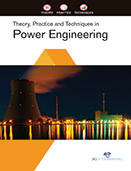Engineering and Technology

Electric power and energy engineering has as a basic tenet the relief of humankind of its burden, and the transmission and processing of information. Power engineering deals with the generation, transmission, distribution and utilization of electric power, and the electrical apparatus connected to such systems. Although much of the field is concerned with the problems of three-phase AC power – the standard for large-scale power transmission and distribution across the modern world – a significant fraction of the field is concerned with the conversion between AC and DC power and the development of specialized power systems such as those used in aircraft or for electric railway networks. It embraces energy systems producing cold, heat, and electrical energy using the heat of regenerated natural and secondary industrial (household) sources. The energy, economic, and ecological problems that are getting worse in the world lead to a requirement for expanding the use of low-potential power engineering systems (LPES). Many traditional heat and energy supply technologies should be considered. In view of the increasing shortage and price increase of organic fuel, it is necessary to utilize all engineering waste heat, mainly from thermal and atomic power stations, and power-consuming industrial enterprises. An increase in the proportion of electric energy produced in atomic power stations, and connected with this the development of hydrogen power engineering, strengthens this requirement. Currently, use of secondary energy resources in industry does not exceed 20%. With the aim of saving organic fuel and reducing emission of hot gases, and mainly carbon dioxide as a combustion product, it is necessary to accomplish not less than 75% of heat supply using LPES. The ‘Energy’ thematic area has grown into an extremely challenging topic lately, due to its impact on economic, social, technical, environmental and even political levels. Consequently the power engineering education becomes a significant pillar with direct outcome in the general as well as specific competences that future graduates acquire.